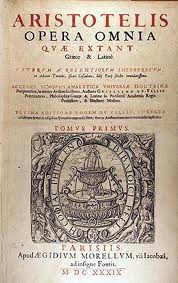Paulo Renato was my brother-in-law (the husband of my sister). I've allways admired and loved him for his good character, his intelligence and the important work he did for the improvement of education in Brazil. I quote below the words of Graham Howells, my husband, on the occasion of Paulo's death.
Death, be not proud, though some have called thee
Mighty and dreadful, for thou art not so;
For those whom thou think’st thou dost overthrow,
Die not, poor Death, nor yet canst thou kill me.
From rest and sleep, which but thy pictures be,
Much pleasure; then from thee much more must flow,
And soonest our best men with thee do go,
Rest of their bones, and soul’s delivery.
Thou art slave to fate, chance, kings, and desperate men,
And dost with poison, war, and sickness dwell;
And poppy or charms can make us sleep as well
And better than thy stroke; why swell’st thou then?
One short sleep past, we wake eternally,
And death shall be no more; Death, thou shalt die
Do not be proud, Death, even though some people have called you powerful and fearsome, because you are neither of those things. Because, poor Death, the people you think you kill do not die, nor can you kill me. Since we take great pleasure in rest and sleep, which are imitations of you, then we shall have even more pleasure from you yourself, and our best men go to you before anyone else, to enjoy peace for their bodies and the delivery of their souls [to God]. You are a slave to destiny, to fortune, to kings and to desperate men and live with poison, war and sickness. And if opium or magic can make us sleep as well or better than your actions, why do you swell with pride? After a brief period of sleep we shall wake up to enjoy eternal life where there will be no more death and Death, you will die.

A few days ago we lost a very good man. Paulo Renato Souza, Brazil’s Minister of Education for eight years during the government of President Fernando Henrique Cardoso, died of a heart attack at the appallingly early age of 65. I was not a close friend of Paulo but we were friendly enough to have sailed together in his boat, which I later sold for him as he had rather more important things to do, trying to reform and modernise the educational system of a country the size of half a continent where social conditions range from the wealthiest of suburbs to riverside communities reachable only by boat, via some of the largest and most violent slums in the world. The technical details of his innovations, the most important of which involved objective assessment of educational attainment both within Brazil and measured against other countries through the PISA system, together with schemes for extending access to schooling, providing books to the furthest outposts of the country and encouraging distance learning, are matters of official record. What the record does not show is the manner in which the man approached the immense problems put before him, a manner I can only describe as ‘graceful toughness’.
Looking objectively at Mediterranean cultures such as that of Brazil, the outsider is struck by the savage selfishness of their citizens when personal privileges are questioned. Shaking up the complacent lives of teachers and educational bureaucracies is a short route to attracting vituperative criticism (we are seeing a version of it in Britain today, and this is a society where people are used to making personal sacrifice for the general good), yet Paulo Renato rode over these petty attacks with the self-confidence of strong man doing what was right – in contrast to the hysteria of weak men clinging to dogma which characterised his critics.
Paulo Renato was a Renaissance man in a shabby world of specialists – he enjoyed his sailing, though when I knew him work prevented him from doing it as often as he would have liked; when he visited a relative who had just had a baby I watched him give an informal lecture on how the bones of the infant skull knit together; he enjoyed his wine and his cigars and his house had good paintings. We read his career path and it seems to have been an uninterrupted rise from one post of immense responsibility to another and yet this was not achieved by crawling to authority: he was working for a United Nations agency Chile when Pinochet seized power and he and his wife Giovanna took into their own house refugees from Brazil whose position in this new dictatorship had become perilous – at one time hosting 17 of them. He and Giovanna also housed for a year a family member branded a ‘dissident’ by the Brazilian dictators, but they never boasted of these acts nor sought to gain personal or political capital from them.
In life Paulo was an inspiration to those of us working in education at a far lower level and even his death reminds of another of John Donne’s reflections: “Do not ask who the funeral bell is ringing for – it’s ringing for you”. The best thing those of us can do who are lucky enough to still be in the world and have the chance to do something useful in life is to take a lesson from Paulo and keep trying to make the world a better place.






